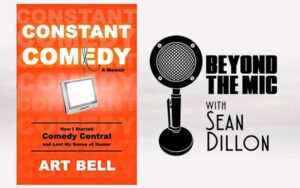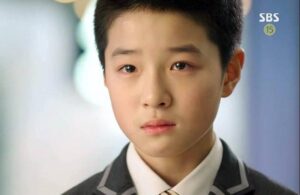“Sweet Home” (스위트홈)

“Sweet Home” has some incredible highs. But unlike “Kingdom” or “Uncanny Counter,” where action supplements the storyline, “Sweet Home” has too much mediocre filler to make it a truly great K-drama.
Journalist, Author & Syndicated Columnist

“Sweet Home” has some incredible highs. But unlike “Kingdom” or “Uncanny Counter,” where action supplements the storyline, “Sweet Home” has too much mediocre filler to make it a truly great K-drama.

“Food is such an insight into the local flavor, the local scene,” said 3 Pairs of Boots vocalist Laura Arias. “It gets one quickly into the vibe of a place.”

Happy International Women’s Day to the cast of “The Penthouse 2.” These amazing actresses prove that you don’t need a Second Lead Syndrome — or any kind of romance — to keep viewers coming back for more.

Most of the characters in “Lovestruck in the City” would’ve benefited with some therapy to work things through and move on from unhealthy relationships that should’ve been severed early on.

Like “Train to Busan,” “Kingdom” was released well before the coronavirus outbreak cause pandemonium worldwide. Both are sociopolitical projects disguised as zombie horror thrillers, where those in power don’t try to prevent the outbreak, so much as they try to stop news of the outbreak from being released. The public’s ignorance suits their own needs.

Celebrities are like all of us. When we’re hungry, we can’t function. But Korean celebs are extra when it comes to eating — it seems like they’re starring in their own mukbangs.

Comedy Central founder Art Bell says that Denali National Park and Preserve in Alaska is a wonderful vacation spot: “Because cars weren’t allowed in the park, we had to take a four-hour bus ride to get there. We hiked every day, avoided a confrontation with a grizzly bear and met some remarkable people. The view of Denali mountain was spectacular.”

There are several subplots percolating in “Run On,” but the most interesting was the bullying, especially in light of the accusations of real-life bullying scandals surrounding idols and actors. This K-drama offers a perspective that bullying is a part of Korean hierarchy, and those with wealthy and powerful parents won’t be punished. Those who are poor and powerless won’t get justice.

In this op-ed, writer Jae-Ha Kim unpacks the racist comments of German radio host Matthias Matuschik towards Korean band BTS in the larger context of the rise in violence toward Asian people globally. Content warning for discussions of racism and use of a quoted slur.

Because Korea has a long and complicated history with the purity of bloodlines and a general disdain for adoptees, I had always found it strange that so many Korean dramas dealt with issues that the mainstream media was reticent to cover. But in some ways, K-dramas can be very progressive in covering touchy topics. Hopefully, seeing orphans and adoptees depicted simply as children who deserve to be loved and cared for — like any child — is helping to lessen the stigma of kids whose biological parents are no longer in their lives.